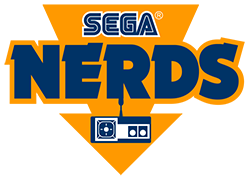
Nintendon’t: Is Nintendo destined for the same fate as SEGA?
As much as we love ’em, there’s no shame in being upfront about the fact that SEGA are undergoing a painful metamorphosis right now, and not for the first time in their long and colourful history. Indeed, the day the Dreamcast‘s fate was sealed and SEGA transitioned to third party developer status was truly the end of an era.
If 20 years ago you’d have told gamers of the time that the console business would become a two horse race between Sony and Microsoft, you’d have been branded a gibbering idiot. After all, one makes Hi-Fis and the other PC software, right? The idea of either of them giving Sonic and Mario sleepless nights was utterly inconceivable. Yet, here we are.
Nintendo are still in the home console business, of course, but have spent the past few years floundering at the bottom of the gaming food chain. The Wii U is now beyond saving, given its poor market position and staggering lack of third party support. Coincidentally, the console’s lifetime sales are comparable to those of the Dreamcast, and Nintendo are arguably fighting against a similar apathy from mainstream gamers as regards their once world-conquering IPs, which might well leave you wondering if Nintendo’s ultimate fate will mirror that of SEGA.

To answer that fully we need to rewind 14 years and look at the situation SEGA were in just as they killed the Dreamcast off. By 2001, it was obvious that the console would be unable to compete with the upcoming PlayStation 2, and SEGA were hemorrhaging money. Only the late Isao Okawa‘s selfless decision to return around $691 million worth of shares saved them from bankruptcy. SEGA would have had little choice but to turn its attention to third party development after so close a brush with death.
From the turn of the century onward, gaming slowly transitioned to a US-centric focus, leaving the hobby’s Far Eastern origins behind. Nowadays, it almost entirely revolves around America. Yes, Sony is a Japanese company, but their strategy is very much geared toward courting the enormous purchasing power of the world’s largest economy.
Nintendo have failed to keep pace with this seismic shift within the industry, and are experiencing something of a midlife crisis, whereby they’re struggling to come to terms with, and satisfy, modern audience expectations. This is the fundamental truth behind the Wii U’s dismal showing thus far.
So, we have two Japanese elder statesmen of gaming with two failed consoles, albeit for different reasons, at something of a similar crossroads. But there’s a key differentiating factor here; money.

As I touched on earlier, back in ’01 SEGA were not in any financial position to take on Sony, and at the tail end of a string of other hardware failures, such as the 32X and Saturn. Nintendo, on the other hand, are currently sitting on a Scrooge McDuck-style pit of money, after huge successes with the Wii, DS, and to a lesser extent, the 3DS. Because of this, they are very unlikely to have to deal with uncomfortable changes in direction or require the aid of a philanthropic president and/or shareholder to stay afloat anytime soon.
Be that as it may, a similarly lackluster performance by Nintendo’s next console, the ethereal ‘NX’, could well end up being a precursor to their own ‘Dreamcast moment’. This is mainly because a further three or four years spent on the industry’s fringes would likely result too big of a gap between mainstream gamers and Nintendo’s hardcore fans for the company to ever hope to close, regardless of the volume of resources committed to such an endeavor.
In the wake of a second consecutive high-profile failure, it would be difficult to envisage a scenario whereby Nintendo has the appetite for a third go-round, and at that point either a switch to third party development, or perhaps a focus on handheld, would be the only logical choices.

In some ways, it’s a real shame that SEGA didn’t have Nintendo’s resources at their disposal back in 2001, because the unlike their once arch-rivals, SEGA did understand the industry they were trying to crack at the time. Their decision to make a console that appealed to developers as well as gamers, commitment to online gaming and even some small morsels of proto-DLC would all turn out to be prophetic. There was absolutely nothing wrong with the Dreamcast as a product, it was just unfortunate that another console with a more powerful brand name, and a predecessor with enormous market share, was just around the corner.
To summarise, then, while Nintendo are happy and able to take the Wii U’s failure on the chin and soldier on, that may not be the case with subsequent consoles in years to come. If the company does follow SEGA’s lead and exit the hardware business, then the sun really will have set on gaming’s Japanese origins, and the industry will have turned a corner that I hoped and prayed it never would.
Sonic’s tagged you in, Mario. Don’t screw up.






